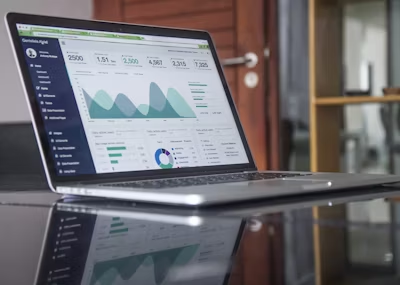The international business environment is experiencing a period of rapid transformation, driven by major investments in artificial intelligence (AI) and intensifying trade disputes between economic powerhouses. With AI innovation accelerating at an unprecedented pace and geopolitical tensions influencing markets, businesses worldwide are bracing for a complex and unpredictable year ahead.
AI Investment Surges as Nations Compete for Leadership
At the AI Action Summit in Paris, global leaders and corporate executives announced a wave of new investments aimed at securing dominance in AI technology. The summit, co-hosted by France and India, attracted participation from over 100 nations, reflecting the worldwide race to harness AI’s economic potential.
Key announcements include:
- The European Union’s InvestAI Program: A €200 billion initiative focused on AI infrastructure, with €20 billion dedicated to new AI training centers.
- France’s AI Sector Expansion: Nearly €110 billion in private investments, with substantial backing from Middle Eastern and Canadian financial groups to develop cutting-edge AI facilities.
- A New AI Business Coalition: Over 60 European companies have pledged to invest €150 billion in AI-related industries, aiming to strengthen Europe’s position in global tech competition.
These moves signal a shift toward aggressive investment strategies as countries and corporations vie for leadership in the AI sector. The rapid infusion of capital is expected to drive innovation, but it also raises questions about ethical concerns, regulatory challenges, and the future of job markets affected by automation.
Trade War Escalates as U.S. Slaps Tariffs on Canada and Mexico
In a controversial move, the United States has imposed new tariffs on imports from Canada and Mexico, triggering concerns about economic retaliation and supply chain disruptions. The tariffs, which go into effect next month, include a 25% levy on all Mexican exports and a 10% tariff on most Canadian imports, excluding oil and energy products.
President Trump defended the measures as necessary to reduce the U.S. trade deficit and address issues related to border security. However, Canada and Mexico have strongly opposed the tariffs, calling them unfair and a violation of trade agreements. Both countries are reportedly considering countermeasures, including retaliatory tariffs on key U.S. exports such as agricultural goods and consumer electronics.
The business community is already feeling the effects of these developments. North American manufacturers, retailers, and logistics companies are scrambling to reassess supply chains, fearing that prolonged trade disputes could lead to rising costs and economic instability.
Major Corporate Developments and Leadership Changes
Amid the broader economic shifts, several major corporations are making strategic moves:
- Swiss banking giant Julius Baer announced a leadership change, with Denise Cockrem stepping in as chair of its UK business following the resignation of Jeremy Parrish. The move is part of a broader restructuring aimed at strengthening the company’s European operations.
- OpenAI is reportedly considering a $97.4 billion buyout offer from a group of investors led by Elon Musk, underscoring the intense financial interest in AI development. The company has not yet publicly responded to the bid, but industry analysts suggest it could reshape the AI market if approved.
Economic Indicators Paint a Mixed Picture
The latest U.S. employment report shows a labor market experiencing both resilience and strain. The economy added 151,000 new jobs in January, slightly lower than expected, while the unemployment rate edged up to 4.1%. Job growth remained strong in healthcare, financial services, and logistics, but federal government employment declined by 10,000 jobs.
While the overall labor market remains stable, concerns persist about the impact of tariffs, AI-driven automation, and global economic shifts. Some economists warn that prolonged trade disputes could lead to further job losses in key industries, while AI investments might create long-term opportunities but also disrupt traditional employment sectors.
Looking Ahead
With massive AI investments reshaping the business landscape and rising trade tensions fueling economic uncertainty, global markets are poised for a volatile year. Businesses are adjusting to new realities, from adapting to AI-driven transformations to navigating geopolitical challenges. In the months ahead, investors, corporations, and policymakers will need to strike a balance between innovation and stability to sustain economic growth in an increasingly complex environment.


